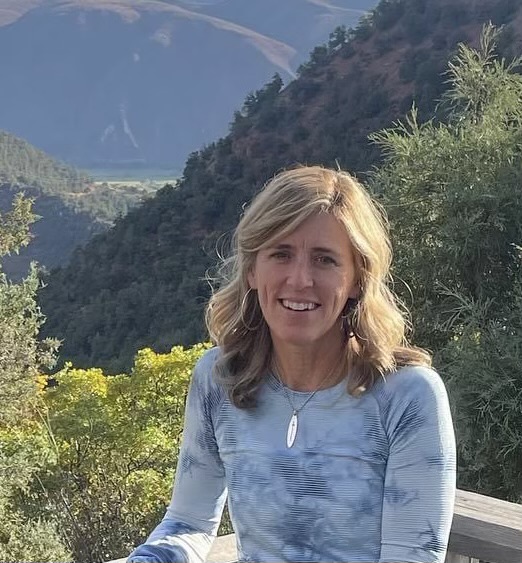Words harm and words heal. I am not sure words are ever neutral, ever just words. Turns out the old sticks and stones childhood rhyme was wishful thinking: the names we were called sit deep in the stories we tell ourselves. “Goody Two-shoes.” “Tomboy.” For better and worse, I owned those names. I know the power of words, because I’ve felt their sting. Out of curiosity, I looked up the history behind “Goody Two-shoes” and discovered an interesting tale… but I digress. This is also what words do to me, sending me on rabbit trails of research, finding the meaning beneath the meaning. I dig at the roots and see if I can unearth some new understanding. I’ve been delighted recently to discover Marilyn McEntyre, a kindred spirit and sage when it comes to the power and impact and meaning of words.
In Speaking Peace in a Climate of Conflict, McEntyre reminds us what words can do and invites us to be stewards of our words. She challenges us to harness the power we hold to “speak up–speak out–speak for” the marginalized and oppressed. Although finding my voice and the courage to speak can be a challenge, I found in McEntyre both a balm and an invitation. She names the tensions and challenges and then invites us to seek a path forward and through. We all have been confronted in recent years with truths we cannot un-know or un-see. These things have forced us into some sticky, thorny places. Yet McEntyre advises, “If I am willing to know, I must be willing to act on what I know.”
Cancel culture. Fake news. Woke. Make America Great Again. Build Back Better. Liberal. Conservative. The cacophony of words we consume daily is impossible to tune out. It is an onslaught, a force, filled with emotion and accusation intent on eliciting a response from the listener. Pick a side. Are you in or out? Are you with us or with them? Choose carefully. McEntyre writes, “Speaking is not a politically or theologically neutral act any more than voting or buying and the charge words carry is intensified in a climate of widespread verbal promiscuity and word wars.” I am relieved when someone takes words so seriously, because the words we hear are not vapors that dissipate quickly. Words remain, reverberate, take root, become part of us without our consent or permission. We wind up carrying unexpressed angst as both weight and weapon. The challenge is to “learn to speak peace, reclaiming words that have been weaponized and beat them into plowshares.”
Every chapter is an invitation and challenge to ask more questions and discover truthful ways of communicating. “Unmask Euphemisms.” “Remind People What They Know.” “Articulate Your Outrage.” “Find Facts and Check Them.” McEntyre does not shy away from conflict. She wades in and confronts with humility and grace—yet no matter the intensity of the topic, she models a playfulness with words that made me grateful. I’m grateful, too, that as she weaves seamless stories I found myself exploring the writers, poets, and philosophers who have spoken words of truth into her life.
By the time I arrived at chapter 10, “Complicate Matters,” I had found my footing and was cruising along with a growing sense of assurance and boldness. “Complexity is not the opposite of clarity. Oversimplification is a dangerous tool–deceptive, manipulative and alluring.” Yes, I nodded to myself, exhaling in agreement. McEntyre continues with a reference to John Keats’s idea of “negative capability,” the ability to dwell in ambiguity or paradox. It is this ungrounded, unstable place where McEntyre reminds me I can rediscover wonder and curiosity. Her description brought me back to a childhood experience of walking upstream in a shallow river, feeling each step carefully with my toes, looking for a stable rock before transferring my balance. That visceral barefoot knowing and trusting for what I could not easily see below the surface of the flowing river–I want that kind of wisdom my child-self knew. It was intuitive, second-nature, and the riverbed’s instability was expected and welcomed. As I have aged, I catch myself weary of having to wade into the waters of complexity. “Why can’t people just see what I see?” I think in exasperation. “How can they continue to align with them?”
“Seeing more complexly involves widening the lens through which we look,” McEntyre writes. In many ways, it’s easier to widen my lens to include the marginalized than my wealthy white tennis-mom neighbors. McEntyre says, “Spend a little time between the lines, behind the words. Tug on the threads. See what comes.”
In this climate of polarized conflict, my deepest grief centers around other Christians. I have come to a place of questioning everything and everyone. Like many, I have developed a deep skepticism and distrust of the structures of faith. How do we move forward in these confusing times? What can we say? McEntyre closes her work with what feels like a benediction, which may be the blessing I need to “speak peace in a climate of conflict”:
“We just have to stand where we must and speak about what’s given with specificity, humility, boldness, awakened imaginations, gratitude, and grace, and with the clarity to which, as creatures who do not live by bread alone, but also by words, we are called.”
May it be so.

